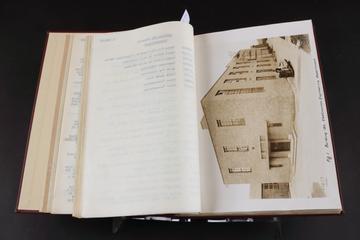
British Thomson-Houston Co Ltd
The British Thomson-Houston Co. Ltd., (BTH) was created as a subsidiary of the General Electric Company, USA in 1896 to exploit the sale of products in the United Kingdom. BTH was a reconstruction of an existing firm, Laing, Wharton and Down (1886). The BTH manufacturing works were based at Rugby, Warwickshire and the company’s products included induction motors, alternators, switchgear, turbo-generators and turbines, as well as a large number of rotary converters and motor converters, primarily for chemical plants.
During the First World War, BTH’s most significant contribution was the development of marine apparatus for the naval service. The 1920s saw a period of vast expansion for the company with new extensions built at many of its factories such as Willesden, Birmingham, Chesterfield and Lutterworth. BTH amalgamated with Metropolitan-Vickers Electrical Company Ltd to form Associated Electrical Industries (AEI) in 1928 although both companies retained their separate identities and continued to compete for the same contracts.
BTH developed manufactured electric torpedoes and electrical components for aircraft engines, munitions, etc., during the Second World War and in 1935 independently of each other, BTH and Metropolitan-Vickers were the first two companies in the world to construct jet engines.